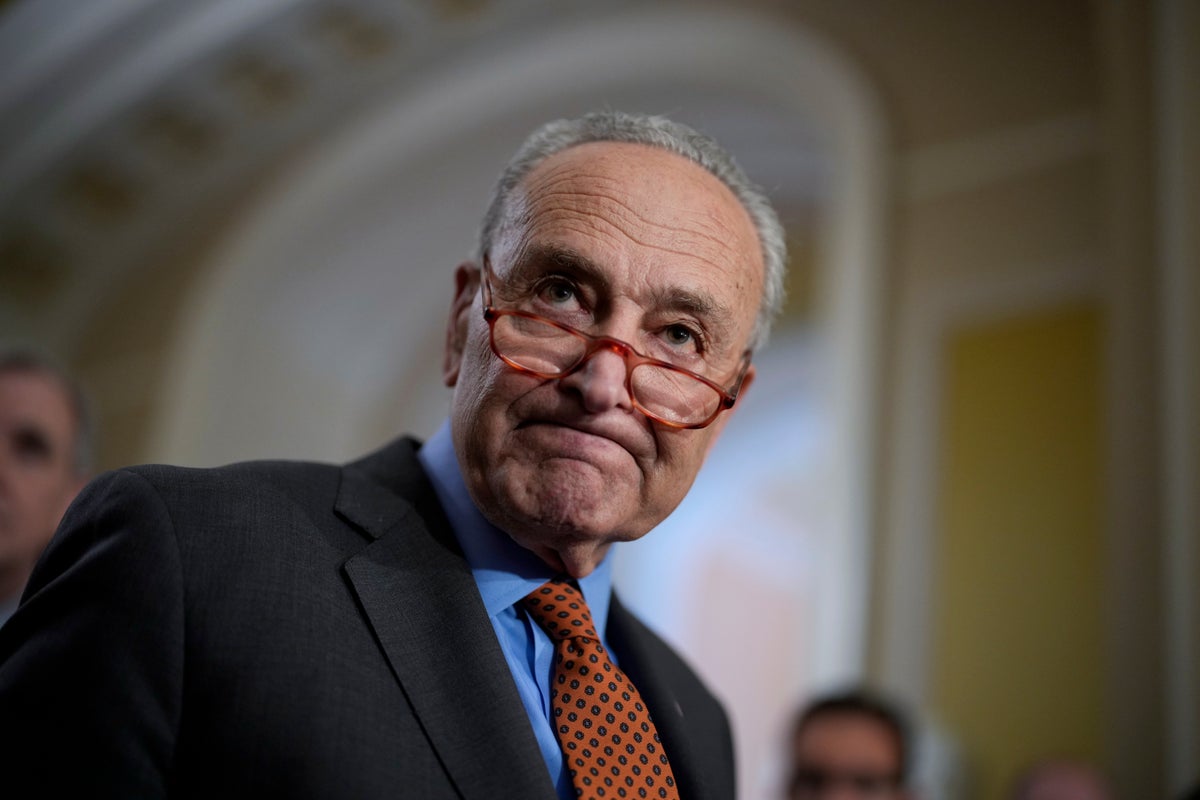
As Washington slow-walks toward a crisis over the national debt, President Joe Biden and House Speaker Kevin McCarthy are talking to two very different Americas.
The GOP congressional leader kicked off the week by heading to Wall Street to outline his conditions for raising the country's borrowing limit. The Democratic president planned to offer his rebuttal on Wednesday at a union hall in Maryland, where he was set to lambaste Republicans for "holding hostage” the country's ability to pay its debts.
“While I’m here in this union hall with you, the Speaker of the House Kevin McCarthy went to Wall Street two days ago to describe the MAGA economic vision,” Biden planned to say, according to speech excerpts released in advance. “Folks, it’s the same old trickle-down dressed up in MAGA clothing. Only worse.”
The two men, who need to come together for the sake of the U.S. economy, are playing out diametrically opposite strategies to different audiences, each wagering he'll win out in the end.
To the extent they have engaged each other — with no active negotiations between the two camps so far — it has been only to provide fodder for attacks. McCarthy says Biden is “bumbling” into a default by not meeting with him; Biden counters that McCarthy has already “threatened to become the first speaker to default on our national debt” unless he gets what he wants in the budget.
If Congress and Biden cannot reach agreement on the debt limit in the next several weeks, the government could be unable to pay all of its bills and face an economy-ravaging default.
McCarthy is facing pressure from conservatives in his razor-thin House majority who delayed his elevation to the speakership. He says any increase to the government's borrowing authority must be paired with spending cuts. The California Republican argues excess government spending has driven up inflation, empowers China and threatens the future of Social Security and Medicare.
Biden contends that spending cuts would put an unacceptable strain on the government’s ability to meet its constitutional responsibility to stand behind its obligations. Focusing on everyday voters, he says caps on spending could hurt a middle class that's already struggling to afford basic needs. The GOP faith in tax cuts has blown up the deficit, he says.
Both men are veterans of the nasty debt limit battle of 2011, when Biden was vice president and McCarthy was a relatively new member of the House Republican leadership. They know the risks of even edging close to the debt limit deadline, such as the first-ever downgrade of the U.S. credit rating that occurred that summer. For all the posturing, the markets generally assume as of now that a deal will be reached as it has in the past.
But as they've talked past each other, they've rarely talked with each other. The president and the new Republican speaker sat down in early February, but have had little substantive communication since. The White House, instead, has pushed McCarthy publicly to release a GOP budget plan that details its proposed cuts — which Democrats believe will be anathema to voters.
Meanwhile, the White House is standing with Democrats on Capitol Hill who overwhelmingly insist that no concessions be made in exchange for lifting the debt limit, while McCarthy and his lieutenants work to piece together a package that would win over nearly every House Republican.
Most details of that plan are yet to be finalized. But as of now, the Republican proposal would raise the debt limit into 2024 in exchange for scaling back spending to fiscal 2022 levels, clawing back unspent pandemic relief money and imposing a 1% cap on future non-defense spending each year for 10 years. It also contemplates new work requirements for federal aid recipients, as well as an energy package of oil and gas drilling and permitting changes that has been framed as the House GOP's marquee legislative offering in their young majority.
It's far from clear whether this plan can get 218 votes — a House majority —and whether McCarthy will have to add on other changes — such as repealing the Democrats' sweeping climate, health care and tax law known as the Inflation Reduction Act — to persuade holdout Republican lawmakers.
“If Speaker McCarthy does not change course, he will be leading America into default of not paying our debts for the first time” in U.S. history, Senate Majority Leader Chuck Schumer, D-N.Y., said Wednesday.
Much of the rhetoric now is political posturing ahead of the deadline to raise the debt limit before the U.S. reaches the ceiling, which is a moving target but is expected in the coming months. The White House has only hardened on its no-negotiation stance since Biden hosted McCarthy in the Oval Office, even though some lawmakers, aides and economists believe that eventually the two sides will avert a default.
Wall Street firms — looking at tax revenues — are estimating that the day of reckoning is near. Goldman Sachs this week estimated that the “x-date” could be reached in June, at which point the “extraordinary” steps taken by the Treasury Department to keep the government running would be exhausted and bills would start going unpaid.
Both sides could tone down the rhetoric by committing first and foremost to the U.S. government avoiding a default on its payments, said Brian Riedl, a senior fellow at the conservative Manhattan Institute. That could help to build credibility and show good faith in talks.
But the only reason the White House wants Republicans to release a full budget resolution "is so that they can demagogue it -- they just want a target to shoot at,” said Riedl, a former Republican policy aide who has spoken to more than 100 lawmakers about the risks of a default.







